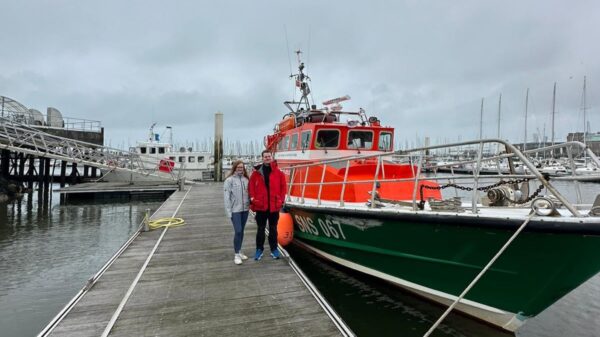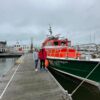Classics Department, Professor Michael Trapp and artist Gen Doy have joined forces on a collaborative project centred around the various narratives of the so-called ‘Roman Bath’ on Strand Lane. As part of KCL’s artist in residence programme launched earlier this year by King’s Cultural Institute, the duo speaks to Roar about the ‘imagined pasts’ that have become such a part of the bath’s history.

Credit: Kate Anderson
“Sitting just off the Strand in one scrubby corner of the King’s College campus there is a historic site that might be Roman, with a glamour that is already curiously at odds with the rather dingy surroundings†says Michael Trapp as he begins to explain the provenance behind this new project centred around a curious bath.
To say however, that this project is about reviving an overlooked historical site would be an over simplification and the pairing of the artist and academic preempts the creativity that infuses it. There is a wider mission as Michael says, to “engage in the belief that these kinds of relationships [between the artist and academic] can benefit both ways.â€

Credit: Michael Trapp
“Maybe King’s is quite a good place for artists…here I get the impression that we are welcome as something a bit out of the ordinaryâ€, Gen Doy muses in a mosaic print dress, appropriately on theme for this collaboration.
The two start a conversation, drifting away from my question concerning the role of truth in this project. Gen reframes it later by asking “why did people want [the bath] to be Roman so much?â€
I am told that up to the 1930s, there were substantial associations and attempts to describe the bath as Roman and dating from the 2nd century (although, it is actually from the 17th).
Gen has an example from the Ladybird book of Julius Caesar’s Roman Britain, that points out the Romans “loved to keep clean†and so we establish that Romans and baths are a modern day ‘cliché’.
“This idea gets attached to the bath then all kinds of things move outwards from that,†Michael says. It seems these extrapolations lead to beliefs that this bath hidden just off the Strand belonged to “a Roman villa [with] lovely slopes going down to the Thames and little birdies flitting about where our rich Roman…†Gen interjects “women were washing themselves in the bath!†This all seems to me, rather believable. But that’s the whole point – it was just someone “carried away by their imagination”.
The bath is a prime example of where ultimate truth would preclude some of the more interesting narratives formed from years of ‘wishful thinking’. Here is a project that celebrates the imaginative tales that have become such a part of the bath’s history. It shows a curiously collective desire that lasted almost a century, to romanticise the origins of the bath in the deepest hope that it really was Roman. Michael explains that the factual history “belongs to the basis of research on which the project rests but it isn’t part of itâ€, my initial question surrounding the role of truth apparently plays into the stereotype of my generation, namely that we prize facts over all else.
Yet when Michael states what “Gen’s activities are trying to do [is] to loosen that up and to say [there is more to] think about that goes beyond just the datesâ€, I concur that what has been said about the bath is indeed far more interesting than what plain facts could simply offer. Gen explains “I’ll be dealing with somethings that are more factual but I’ll be imagining another layer of narrative on top of what’s already there. I am inviting you to have a response that is different to hearing some facts and dates, to give people who come [to the bath] a chance to imagine and think their own thoughts.â€
The stories surrounding the bath will be brought to life during the course of this academic year in a series of events that attempt to redefine the way historical sites are engaged with.
In a project that will be consciously contrasting the conventions of ‘guide-led’ experiences, ‘sounding imagined pasts’ provides an interesting alternative to the way we view the places that surround us.

















